This post may contain affiliate links. By clicking and making a purchase through the links, I earn a small commission at no extra cost to you. See my disclaimer for more information. This allows me to keep the site up to date and expand on resources.
Wondering what the risks of buying real estate in Mexico are? Let me help! I just went through the process of buying a pre-build condo in Mexico, weighing all the risks before taking the plunge.
Diving into the real estate market in Puerto Vallarta was one of those decisions that had me on edge at first—there’s a lot to think about! From navigating foreign laws to making sense of the local market trends, it’s not exactly a walk in the park.
Despite the risks, which honestly felt daunting at times, buying property here has turned out to be a smart move financially. It’s not just about snagging a slice of paradise; it’s an investment that’s already paying off. And the good news? With some solid research and the right guidance, you can mitigate many of the risks of buying real estate in Mexico.
The Mexican real estate market is booming, and for good reason. It offers fantastic opportunities if you know where to look and how to navigate the process.
I’m here to share my story—not just the hurdles but the wins, too. Overall, it’s been a positive experience, and I’m excited to dive into how you can make your real estate dreams a reality in Mexico with a bit less worry and a lot more confidence.
This post will tell you all the risks of buying a vacation home in Mexico with tips on how to mitigate them.
Risks of Buying Real Estate in Mexico
1. The Fideicomiso system

When I first considered buying property in Puerto Vallarta, the term “fideicomiso” was as foreign to me as the idea of living in Mexico.
For those in the same boat, a fideicomiso is essentially a bank trust that allows foreigners to buy property in Mexico’s restricted zones, which are within 50 kilometers of the coast and 100 kilometers of the borders.
It’s a common misconception that Americans can’t buy property in Mexico – but they can through a fideicomiso.
It’s a system put in place by the Mexican government to navigate around the constitutional prohibition of foreigners directly owning land in these areas. Understanding this concept was crucial for me, and honestly, it was my real estate agent who helped put my worries at ease.
They explained how the fideicomiso works: the bank holds the deed to the property, but as the beneficiary of the trust, you essentially have all the rights of ownership. This includes the ability to sell, lease, or pass the property on to heirs.
It’s one thing to read about these procedures online or in guides, but having a seasoned professional offer personalized advice and support made all the difference to understand.
In the end, the fideicomiso was a small hurdle to jump for the payoff of owning my dream property in Puerto Vallarta. If you’re considering buying property in Mexico, my biggest piece of advice is to find real estate agents whom you can trust.
2. Construction Pains
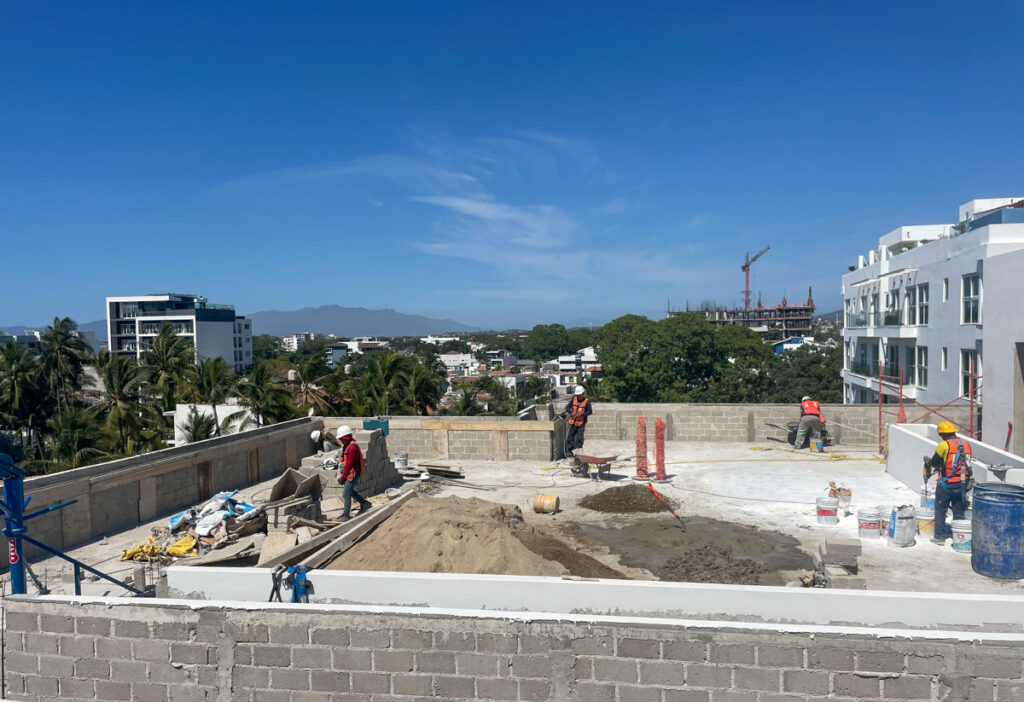
Investing in a pre-built property carries its own set of risks, the most significant being the potential for the final product to fall short of expectations in terms of quality, or even more concerning, the project never reaching completion.
A crucial step in mitigating this risk involves conducting comprehensive research on the developer behind the project. Looking into their track record, past projects, and overall reputation in the market can provide valuable insights into their reliability and the quality of their work.
In my experience, I delved deep into reviewing many pre-builds before making my decision. I scrutinized the developers’ previous projects, seeking out feedback from current residents and assessing the build quality firsthand.
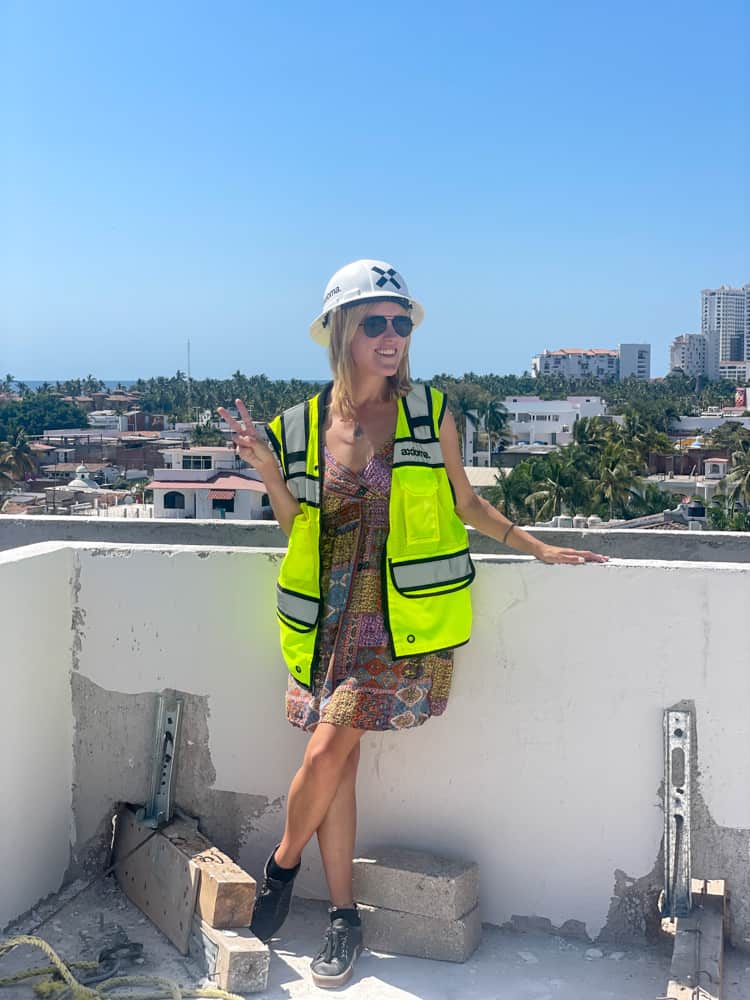
In my case, the condo I bought was already six months away from completion when I made the offer. This timeline significantly reduced the risks associated with pre-build investments since the project’s progress was well underway and visibly on track to completion.
On the flip side, the closer completion date meant that the price point was not as advantageous as it might have been had I committed earlier in the construction phase.
Although opting for a nearly completed property may come at a higher cost, it significantly lowers the risk of facing delays or disappointments with the quality—ensuring peace of mind in your real estate venture in Mexico.
When venturing into the realm of pre-construction real estate investments in Mexico, or truly anywhere in the world, it’s crucial to manage your expectations regarding timelines. A common adage among seasoned real estate investors is that construction delays are not just possible; they are almost guaranteed.
Developers may offer optimistic timelines, but various factors, from bureaucratic red tape to unforeseen construction challenges, can extend the completion date far beyond the initial estimates.
It’s wise to mentally add a significant buffer to the developer’s projected completion time, especially if you’re investing in a property where construction has yet to start. For projects yet to break ground, adding an extra year to your timeline isn’t just cautious; it’s realistic.
Even in my experience with purchasing a condo that was nearing completion, the developers still underestimated the remaining construction time by a few months.
Some purchase contracts include clauses that impose penalties on developers for delays beyond certain thresholds. These penalties can range from financial compensation to the option for buyers to back out of the purchase under specific conditions. Investigating whether such clauses exist and pushing for their inclusion can offer some protection against prolonged delays.
3. Environmental and Zoning issues
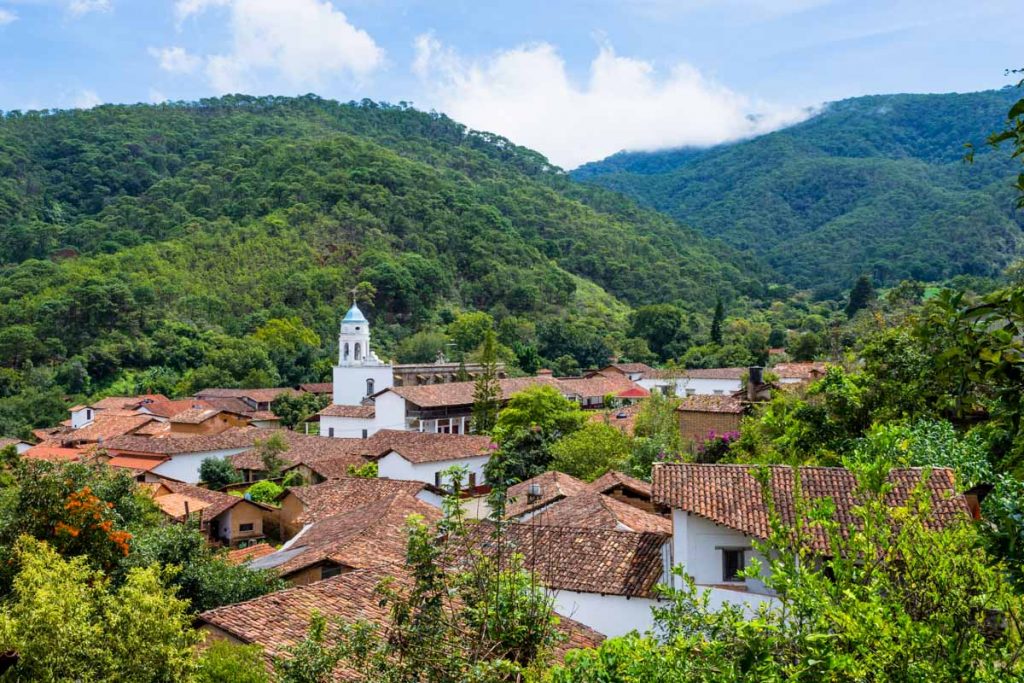
Certain areas in Mexico are subject to strict environmental protections that can limit the type and scope of development allowed. These regulations are designed to protect natural habitats, historical sites, and the environment at large but can directly impact your property’s development potential.
Similarly, environmental hazards such as flooding, landslides, or proximity to protected areas can impose additional layers of complexity and restriction on your property.
The key to mitigating these risks lies in thorough research and due diligence before making any buying decisions.
Familiarize yourself with the local zoning laws of the area where you’re planning to buy. Zoning laws will inform you about what can and cannot be built in certain areas, any specific building requirements, and if there are any plans for future development that could affect your property.
Conduct or obtain environmental assessments of the property to identify any potential hazards or restrictions. This can include assessments for flood risk, land stability, proximity to protected areas, and other environmental considerations that could impact your ability to develop or use the property as intended.
By taking these steps, you can protect your investment from the potential pitfalls associated with environmental and zoning regulations.
4. Title Issues

Existing property
Before finalizing any property purchase, it’s crucial to verify that the seller indeed has the legal right to sell the property. In Mexico, this involves a detailed review of the property’s “escritura” (deed) which should be registered with the Public Registry of Property.
This document confirms the seller’s ownership and reveals any liens, encumbrances, or legal issues associated with the property. Neglecting this step can lead to complicated legal challenges, including disputes over the property’s rightful ownership.
To navigate this process, it is essential to work with a reputable notary public (notario público). In Mexico, notaries play a crucial role in real estate transactions, conducting the necessary due diligence to ensure the property’s legal standing and facilitating the official transfer of ownership.
While thorough ownership verification provides a strong foundation, securing title insurance offers an additional layer of protection. Title insurance is designed to protect you from potential future legal claims against your property’s title. It can cover various issues, from errors in the ownership verification process to undisclosed heirs making a claim on the property.
For those unfamiliar with Mexico’s legal and real estate landscape, I highly recommend partnering with experienced professionals, including a knowledgeable real estate agent and a reputable notary public.
Pre-build property
The primary concern with pre-built properties isn’t about the property’s past but about securing your future ownership rights. Unlike existing properties where the deed transfer can happen relatively swiftly post-purchase, pre-construction investments require patience.
After the property is built and all conditions met, the process of formalizing your ownership through the issuance of the deed begins. This waiting period is a standard part of buying pre-built homes, and while it may seem worrying, it’s a normal part of the process in Mexico. I moved into my apartment months before I received the deed.
For my property, the developer’s proactive approach in selecting a notary and keeping me updated was instrumental in navigating this phase without undue stress. Although waiting for the deed can seem like a daunting aspect of purchasing pre-built properties, having the right developer and legal support can make all the difference in ensuring a smooth transition to ownership
5. Currency Fluctuations

Buying property in Mexico as a foreigner was an eye-opener in many ways, especially when it came to dealing with financial fluctuations. My property was listed in Mexican Pesos (MXN), which was a huge disadvantage for me.
The Peso experienced a historic rise in 2023, significantly increasing the cost of my condo by the time it was built and ready for purchase. This wasn’t something I had anticipated, and it ended up being a costly lesson.
The strengthening of the Peso against the dollar made my investment considerably more expensive in dollar terms.
If I could go back, I’d heed the advice often given to foreign buyers in Mexico: try to secure your property deal in USD. The U.S. Dollar tends to be more stable, and pegging the purchase price in dollars could protect you from unfavorable shifts in the forex market.
Another significant advantage of dealing in dollars is avoiding foreign exchange fees. Each time money is converted from one currency to another, banks and financial institutions take a cut through conversion rates and fees. These can add up, especially in significant transactions like real estate purchases.
If possible, negotiate your purchase in USD to hedge against currency volatility. This approach can offer a more stable and predictable financial outcome, sparing you from the potential pitfalls of fluctuating exchange rates.
If you have to send money across currencies, use Wise. It’s a reliable, efficient, and economical choice for managing payments across borders. Don’t trust your bank’s exchange rate – they have hidden fees in it.
Plus, if you want to save even more, you can use this link to get a fee-free transfer up to $600 when you sign up using this link.
6. Taxes

One of the initial financial hurdles when purchasing property in Mexico is the sales tax, officially known as the acquisition tax. It typically ranges from 5% to 7% of the property’s value.
While this might feel like a significant outlay—akin to “throwing money down the toilet”—it’s an unavoidable part of the buying process in Mexico. Viewing this tax as part of your overall investment can help mitigate the sting, considering it in your budget from the start.
On a brighter note, Mexico is known for its relatively low yearly property taxes, especially when compared to those in the U.S. or Canada. This lower annual cost can make long-term ownership more financially manageable and is a beneficial aspect of investing in Mexican real estate. It can somewhat balance out the initial blow of the acquisition tax over time.
If you decide to rent out your property as a vacation rental, such as through Airbnb, be prepared to pay income tax on your rental earnings. Mexico taxes income generated within its borders, and this includes rental income from properties owned by foreigners. The rate can vary, and there are allowable deductions, but it’s crucial to account for this in your financial planning.
Consult with a tax advisor who is knowledgeable about both Mexican and international tax laws to minimize your taxes. This is particularly important if you’re not a resident of Mexico, as there might be tax treaties or specific regulations applicable to your situation.
7. Natural Disasters
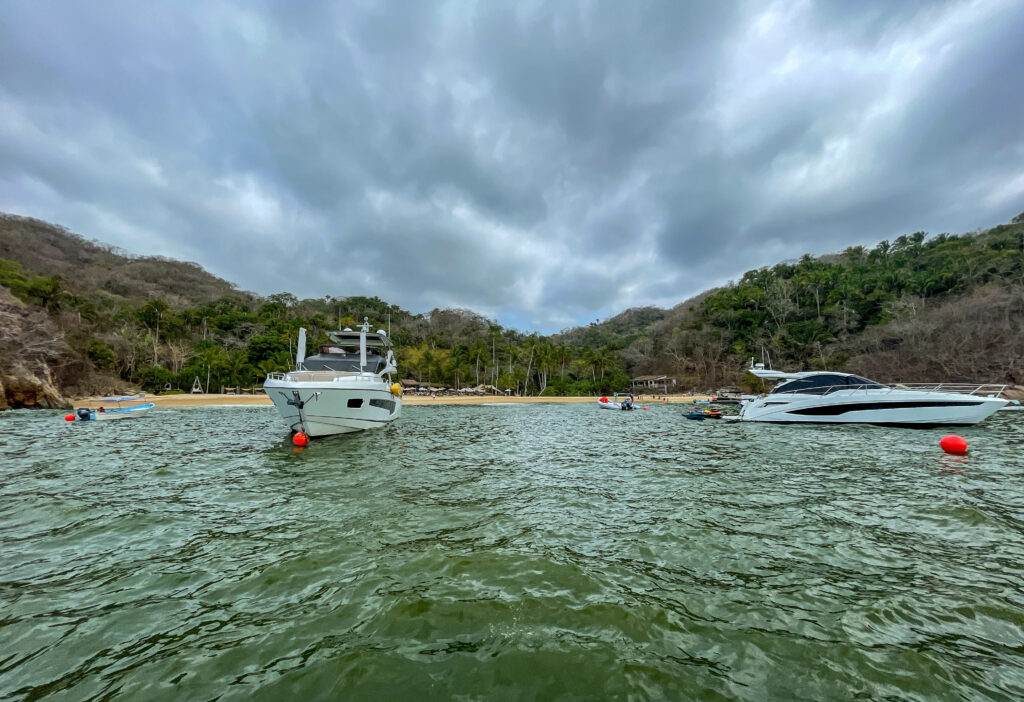
Investing in real estate in areas like Puerto Vallarta, Mexico, brings to light the very real risks posed by natural disasters, notably hurricanes and earthquakes. This region’s susceptibility to such events adds a layer of consideration for any investor.
I vividly remember the mix of excitement and apprehension when I took ownership of my property, only to face a hurricane a few weeks later. It was a stark introduction to the realities of owning property in a hurricane-prone area. Fortunately, the building withstood the storm, but the experience underscored the importance of preparedness and cautious selection of property location.
Mitigating the risk starts with understanding that while certain areas may offer breathtaking views and proximity to the beach, they also come with increased exposure to natural disasters. The allure is undeniable, but so is the potential risk.
One of the most practical steps you can take to protect your investment, regardless of its proximity to natural disaster-prone areas, is to secure comprehensive home insurance. Thankfully, in Mexico, finding affordable home insurance that covers natural disasters is feasible. This insurance not only offers financial protection but also provides a sense of security, knowing that you have a safety net in place.
Ultimately, investing in Puerto Vallarta or similar areas requires a balance between embracing the beauty and opportunities these locations offer and acknowledging the natural risks. By conducting thorough research, choosing your property’s location wisely, ensuring the building is up to code, and protecting your investment with insurance, you can navigate these risks and make a more informed decision.
8. Property Management
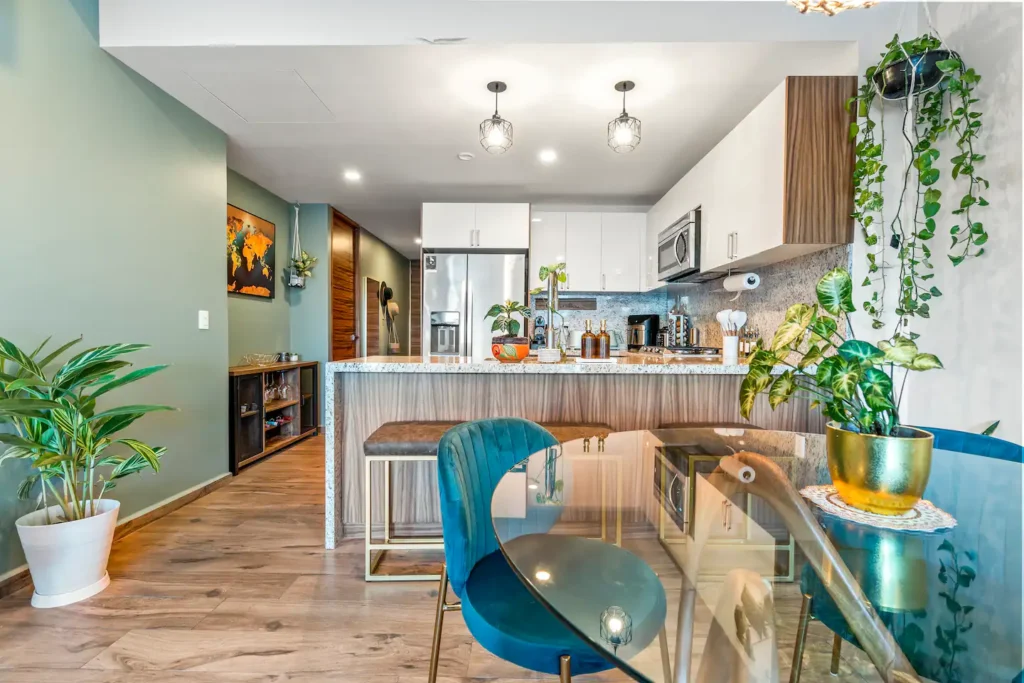
Managing a property in Mexico, especially from abroad, poses its own set of unique challenges. This is particularly true for those investing in real estate primarily as an income source, such as rental properties.
The distance can make it difficult to handle the day-to-day operations, maintenance, and even the marketing of your property to potential renters. Without local connections, property owners might find themselves at a disadvantage.
One effective strategy to navigate these challenges is to partner with a property management company. A reputable property management firm can handle a wide range of tasks, from marketing your property and managing bookings to conducting regular maintenance and dealing with any legalities of renting out your property in Mexico.
I recommend Naya Homes, a boutique agency with a strong reputation for its personalized approach and comprehensive management services.
What sets a boutique agency like Naya Homes apart is their attention to detail and customized service.
They not only manage the operational side of things but also go the extra mile to ensure your property maintains high occupancy rates and generates optimal rental income. Their local expertise and network can be invaluable, especially for property owners who are not able to be on-site regularly.
Get a free revenue estimate for your property here
9. Unexpected Development
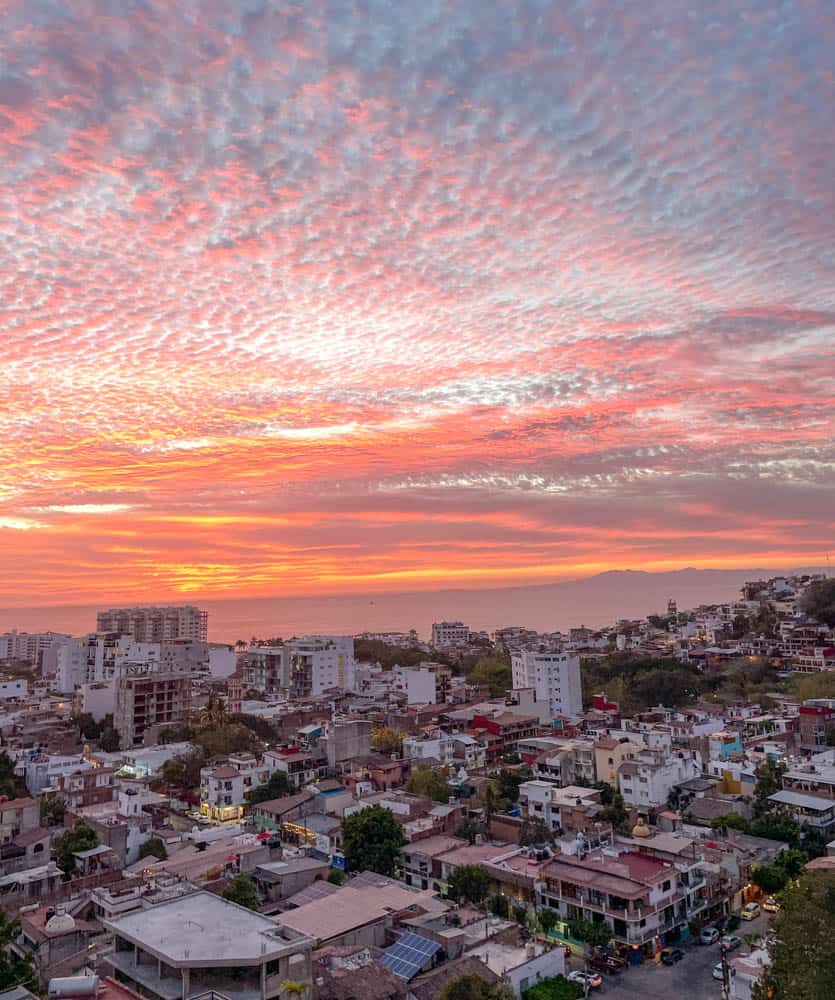
One of the realities of real estate investment, particularly in bustling markets like Mexico, is the potential for new developments to spring up around your property. You might purchase a home with a stunning view, only to find it obstructed when a new building starts to rise next door or behind you.
In the last apartment I rented, they literally started building another condo into the side of mine and barred up my windows. I have no idea how this is legal, but it happened. Similarly, in the condo I bought, a new development commenced right behind me the month I moved in. It’s annoying – but was to be expected, given it was an empty lot in a desirable area.
Mitigating this risk is more about adjustment and acceptance than prevention, as the development of neighboring properties is often beyond your control.
While you can’t predict every future construction, doing some homework on the area’s zoning laws and planned developments before purchasing can give you a better idea of what to expect. Local planning departments or municipal offices can sometimes provide information on approved construction projects.
Opting for properties in well-established areas with limited space for new construction can sometimes reduce the risk of losing your view. However, this is not foolproof, especially in rapidly developing markets.
Accepting that the environment around your property may evolve over time is part of owning real estate. Flexibility and adaptability can help mitigate any disappointment or frustration that comes with unexpected developments.
10. Market Volatility
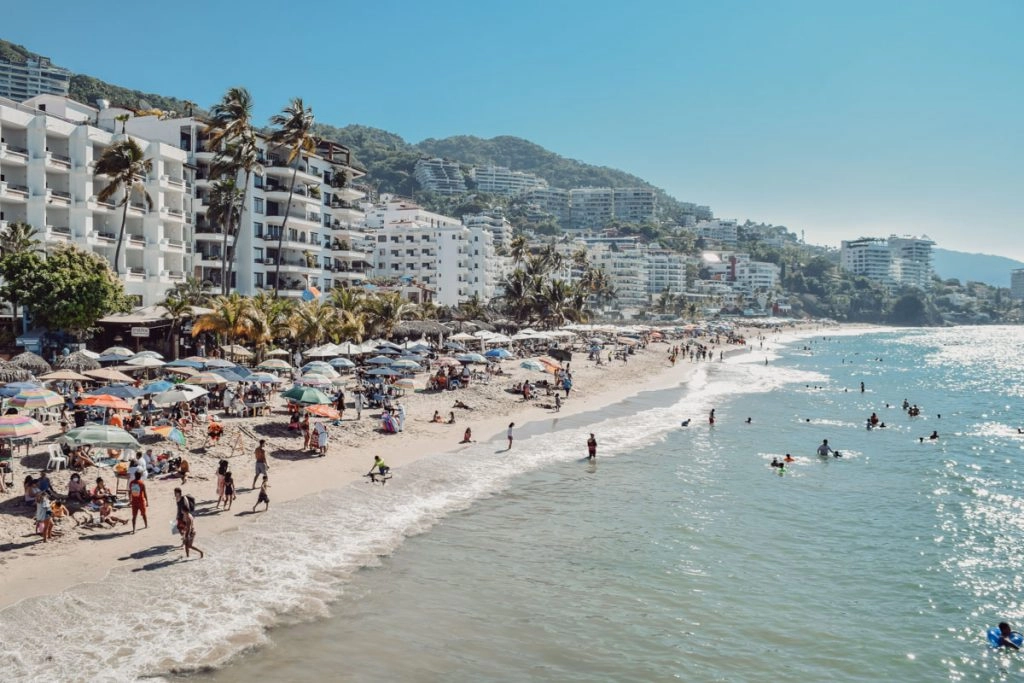
Just like any vibrant market, real estate values in Mexico can see significant fluctuations. These changes are influenced by a myriad of factors, from economic shifts and policy changes to tourism trends and even environmental factors. For any investor, understanding this volatility is crucial.
The best defense against market volatility is thorough research and strategic planning. Paying close attention to local market trends across different regions in Mexico and identifying areas with consistent growth potential are key steps. Historical data can often provide insights into how certain areas have weathered economic downturns or benefited from growth periods.
Initially, I observed the market’s impressive growth in areas like Puerto Vallarta, which spiked my interest and, admittedly, left me wishing I had invested sooner.
Despite some cooling off, the property I eventually purchased still appreciated by about 25% in just a year. This experience highlighted the importance of not just timing but also choosing the right location – Versalles continues to grow in popularity.
For those considering diving into the Mexican real estate market, remember that timing is important, but it’s not everything. Areas that have shown steady growth over the years, despite broader market volatility, can offer safer investment opportunities. Moreover, diversifying your investment across different regions or types of property can also help mitigate risks associated with market fluctuations.
Advantages of Buying Real Estate in Mexico

Despite the challenges and considerations outlined earlier, buying a property in Mexico offers a myriad of benefits that can make it an attractive option for investors and homeowners alike.
Affordability
One of the most compelling reasons to consider real estate in Mexico is its affordability. Compared to many parts of the U.S., Canada, and Europe, Mexico offers significantly lower entry prices for both residential and commercial properties.
Beyond the investment aspect, the affordability of living in Mexico is a major perk. From day-to-day expenses to leisure activities, everything is more cost-effective here.
This affordability has allowed me to enjoy a lifestyle that would be much harder to maintain elsewhere, from dining out more often to exploring Mexico’s many natural and cultural treasures.
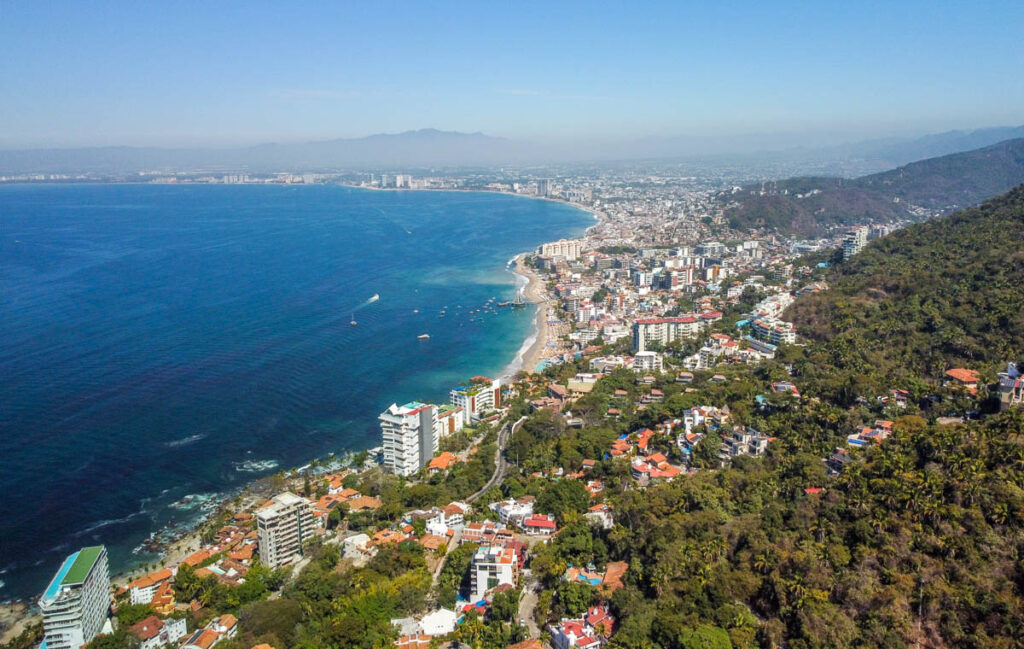
Strong Rental Market
Mexico’s popularity as a tourist destination contributes to a robust rental market, particularly in coastal and tourist-frequented regions.
Properties in areas like Puerto Vallarta and along the Riviera Maya such as Cancun, Tulum, and Playa Del Carmen can generate attractive rental yields, especially when managed effectively and marketed to the growing number of visitors seeking authentic experiences over traditional hotel stays.
While I love living in Puerto Vallarta, my lifestyle allows me to travel frequently, during which I rent out my apartment on Airbnb. This has not only helped cover the costs associated with the property but has also generated a profitable income stream.
The additional income from renting it out has been a fantastic way to capitalize on my investment while sharing the beauty of Puerto Vallarta with visitors from around the globe.
Appreciation Potential
Many areas in Mexico are experiencing significant growth and development, leading to appreciation in property values over time. Early investors in now-popular destinations have seen substantial returns on their investments.
While past performance doesn’t guarantee future results, carefully selected properties in emerging areas or established markets with growth potential can become valuable assets.
Financially, my Puerto Vallarta property has been a wise investment. Even in the short time since my purchase, I’ve seen the value of my apartment appreciate, reflecting both the city’s growing popularity and the savvy of my investment choice.
Quality of Life
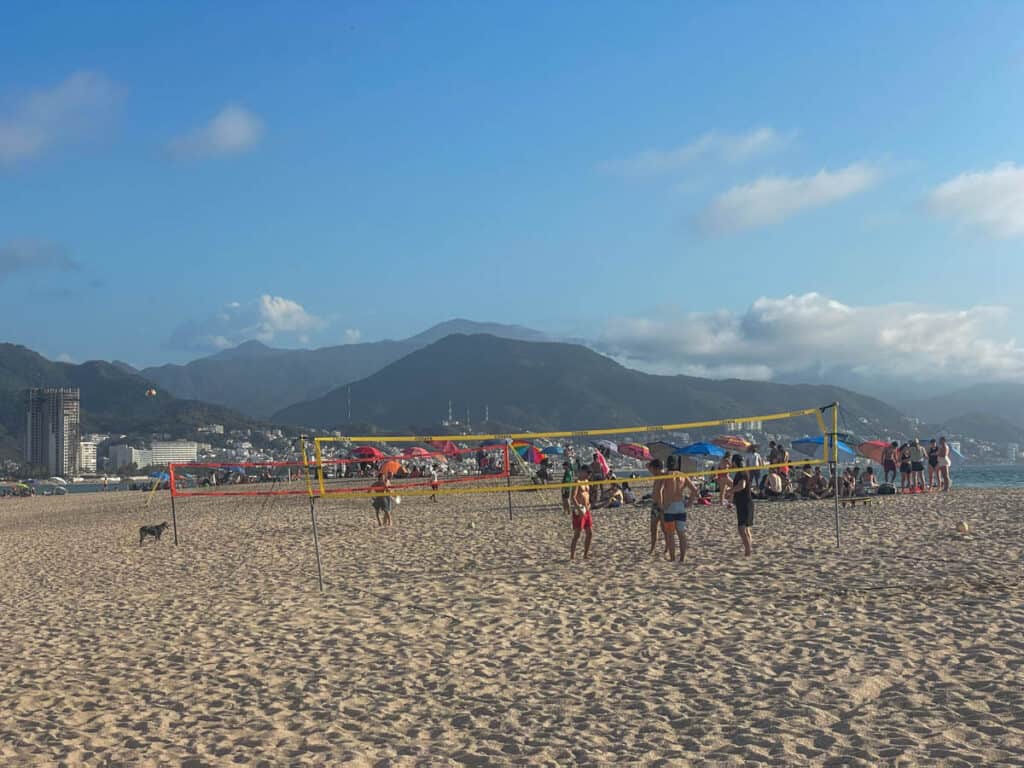
Beyond financial considerations, Mexico offers an unparalleled quality of life that attracts people from all over the world. The country boasts stunning natural beauty, from its beaches and jungles to mountains and deserts. Additionally, Mexico’s rich culture, history, and cuisine, along with its warm, welcoming community, make it an ideal place to live or spend extended periods.
Living in Puerto Vallarta has been nothing short of a dream. The city’s vibrant culture, breathtaking natural beauty, and the warmth of its community have significantly enhanced my quality of life.
Whether it’s strolling along the Malecón at sunset, exploring the lush jungles nearby, or enjoying the local cuisine, every day feels like a vacation here.
It’s offered me a sanctuary in one of the most beautiful places on Earth, a financially prudent investment, and the opportunity to share my slice of paradise with others. For anyone considering a similar path, my experience shows the joys and benefits that await in Mexico’s real estate market.
FAQ: Buying Real Estate in Mexico
Why can’t Americans buy property in Mexico?
Americans can buy property in Mexico, including in restricted zones (within 50 kilometers of the coast and 100 kilometers of the border) through a “fideicomiso” (bank trust).
Is real estate in Mexico a good investment?
Yes, real estate in Mexico can be a good investment due to the country’s growing economy, increasing tourist numbers, and the potential for property appreciation and rental income.
What are the tax implications of owning property in Mexico?
Owning property in Mexico involves paying a transfer tax upon purchase, annual property taxes which are generally low, and income tax on rental earnings if the property is rented out.
Is it a good time to buy real estate in Mexico?
Market conditions vary, but with Mexico’s continued economic growth and popularity as a tourist destination, many investors find it an opportune time to buy, especially in areas poised for growth.
Do Americans pay property tax in Mexico?
Yes, Americans and all property owners in Mexico are required to pay annual property taxes, known as “predial,” which are relatively low compared to many countries.
Can Americans buy beachfront property in Mexico?
Americans can buy beachfront property in Mexico using a “fideicomiso” (bank trust), allowing them to have all the benefits of direct ownership within the restricted zones.
Is it smart to own property in Mexico?
Owning real estate in Mexico can be a smart decision for those looking for a vacation home, retirement destination, or investment property, thanks to its affordable real estate market and high quality of life.
Are property taxes high in Mexico?
No, property taxes in Mexico are quite low compared to the United States and Canada, making property ownership more affordable for many.
Can an American get a home loan in Mexico?
Yes, Americans can get home loans in Mexico. Some Mexican banks and financial institutions offer mortgages specifically designed for foreigners, but they require a larger downpayment than in the U.S.
Is it safe to buy property in Mexico?
Yes, it is safe to buy property in Mexico with the right precautions such as engaging in thorough research and working with reputable real estate agents.
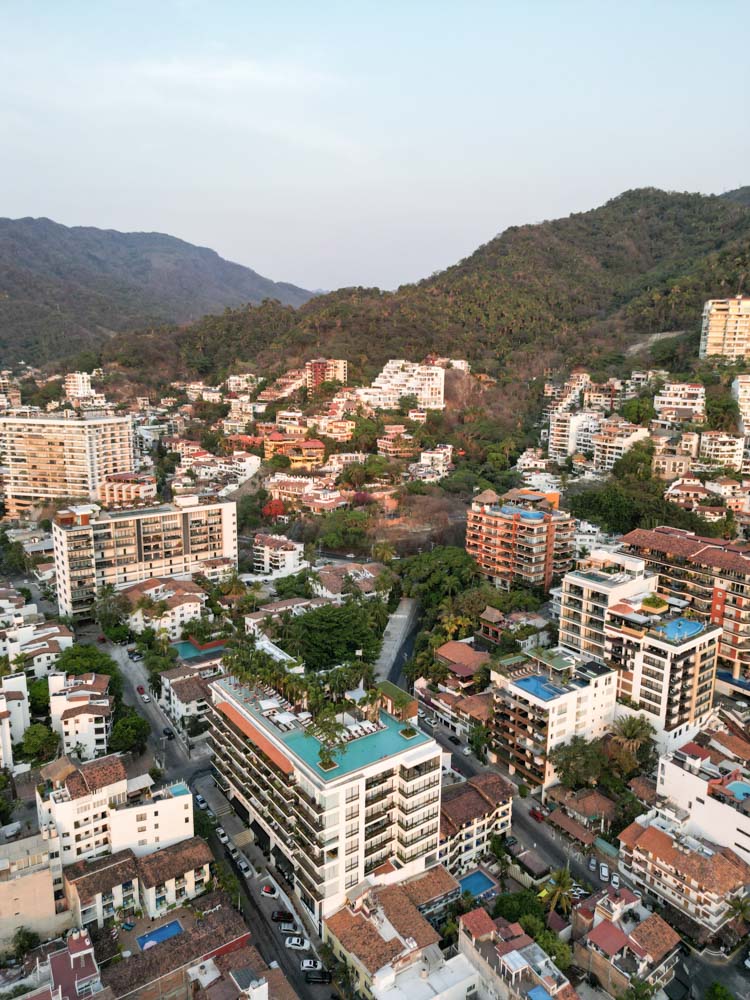
Final thoughts: Mitigating the Risks of Buying Real Estate in Mexico
While buying a home in Mexico comes with its unique set of challenges and risks, from navigating the “fideicomiso” system and dealing with construction delays to potential for natural disasters, the advantages clearly outweigh the drawbacks for many investors and homeowners – including myself.
The affordability of property, coupled with Mexico’s stunning natural beauty, vibrant culture, and the potential for significant appreciation and rental income, presents a compelling case for investment.
Moreover, the experience of owning property in Mexico can extend beyond financial gains, offering a lifestyle enriched by amazing experiences and the joy of embracing a new culture.
With the right preparation, due diligence, and local expertise, the risks associated with buying real estate in Mexico can be effectively managed, paving the way for a rewarding investment and living experience.
Wondering how to buy property in Mexico as a U.S. citizen? Check out this comprehensive guide!
